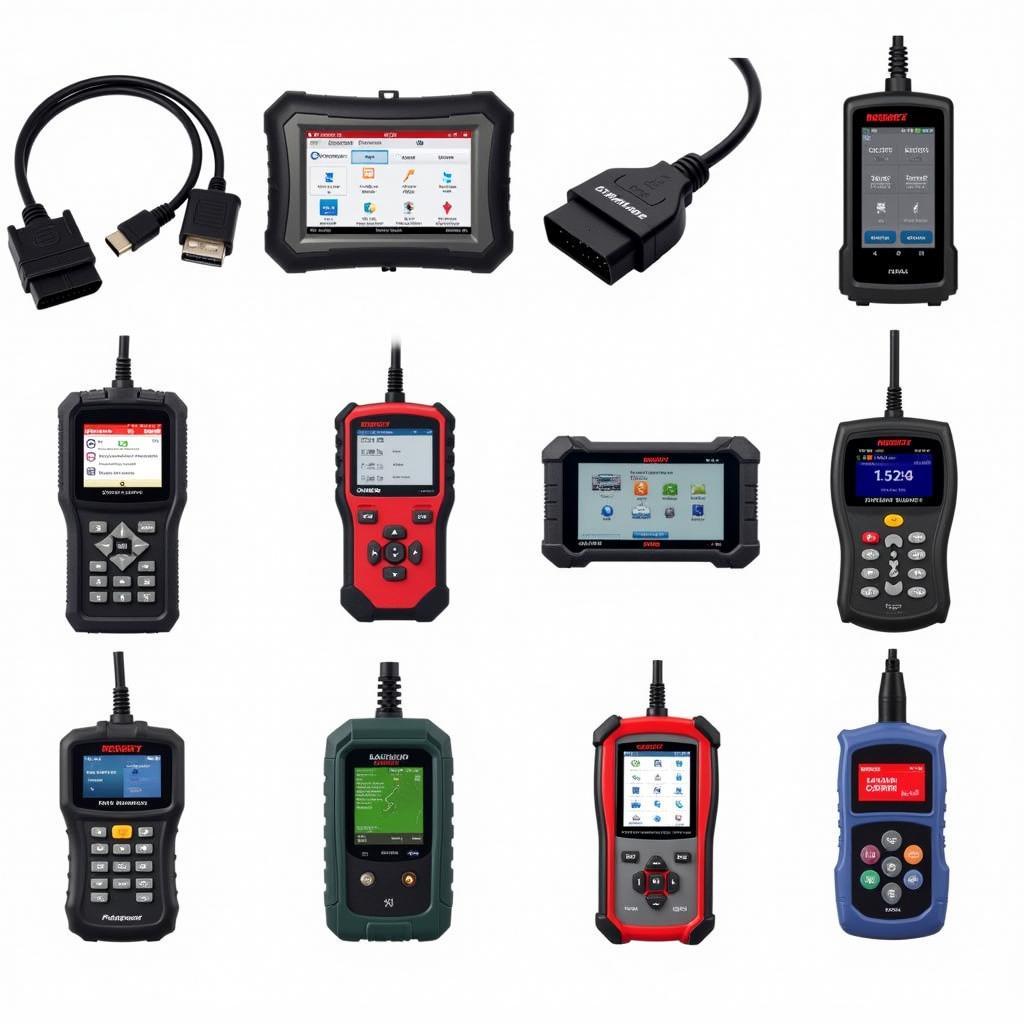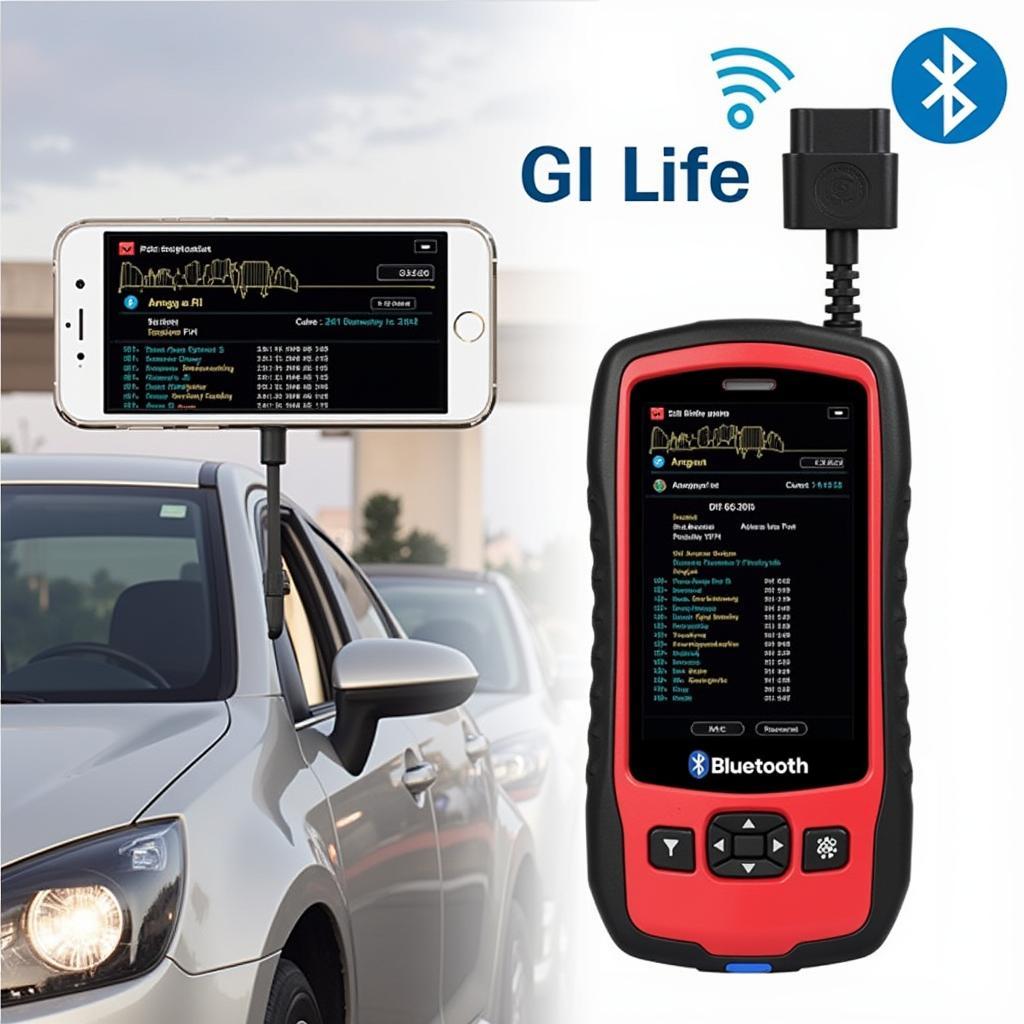Navigating the world of car repairs can feel like trying to decipher a foreign language. But what if you had a translator? That’s where the best car diagnostic tool comes in, empowering you to understand your vehicle’s health like never before. Whether you’re a seasoned mechanic or a car enthusiast, finding the right diagnostic tool can be a game-changer.
Understanding the Power of Car Diagnostic Tools
Modern vehicles are complex machines, relying on intricate networks of sensors and computers to function correctly. When an issue arises, these systems generate diagnostic trouble codes (DTCs), which are essentially clues to what’s going wrong.
This is where car diagnostic tools shine. These devices act as a bridge between your car’s computer and you, translating those cryptic codes into understandable language. They provide valuable information about the problem, such as:
- The specific system affected: Is it the engine, transmission, brakes, or something else?
- The severity of the issue: Is it a minor glitch or a major malfunction?
- Potential causes: What components or systems might be causing the problem?
Key Features to Look for in the Best Car Diagnostic Tool
Not all car diagnostic tools are created equal. When making your decision, consider these essential features:
1. Compatibility: Ensure the tool is compatible with your vehicle’s make, model, and year. Most modern cars use the OBD-II standard, but older models might require specific adapters.
2. Code Reading and Clearing: The ability to read and clear DTCs is fundamental. Look for a tool that provides detailed code definitions and descriptions for easy understanding.
3. Live Data Streaming: This feature lets you view real-time data from your car’s sensors, such as engine RPM, coolant temperature, and oxygen sensor readings. It’s invaluable for diagnosing intermittent issues and monitoring system performance.
4. Bi-Directional Control: Advanced tools offer bi-directional control, allowing you to perform tests like activating solenoids, opening and closing valves, or running fuel pump cycles. This is particularly useful for pinpointing faulty components.
5. Special Functions: Some tools come equipped with special functions tailored to specific car makes or systems. Examples include ABS bleeding, airbag system resets, and electronic parking brake service modes.
6. User Interface: A clear and intuitive user interface is crucial. Look for a tool with a well-organized menu system, easy-to-read displays, and logical navigation.
Benefits of Owning a Car Diagnostic Tool
Investing in a quality car diagnostic tool offers numerous benefits:
- Save Money on Repairs: By identifying problems early on, you can address them before they escalate into costly repairs.
- Avoid Unnecessary Trips to the Mechanic: Diagnose issues yourself and determine if a mechanic visit is truly necessary.
- Gain Peace of Mind: Having a tool on hand provides peace of mind, especially during road trips or when dealing with unexpected car troubles.
- Empower Yourself with Knowledge: Take control of your car’s maintenance and repairs by understanding how everything works.
“A good diagnostic tool is like having X-ray vision for your car,” says John Smith, a seasoned automotive engineer with over 20 years of experience. “It lets you see what’s going on under the hood and make informed decisions about repairs.”
Choosing the Right Tool for You
The best car diagnostic tool for you depends on your individual needs and budget. Here’s a general breakdown:
- DIY Enthusiasts: For basic code reading, clearing, and live data, an entry-level OBD-II scanner is a great starting point.
- Home Mechanics: If you tackle more advanced repairs, consider a mid-range scanner with bi-directional control and special functions.
- Professional Technicians: Professionals require high-end scan tools with comprehensive coverage, advanced features, and regular software updates.
 Various car diagnostic tools for different user levels
Various car diagnostic tools for different user levels
Top Considerations When Making Your Purchase
When evaluating different car diagnostic tools, keep these factors in mind:
- Brand Reputation: Choose a reputable brand known for producing reliable and accurate tools.
- Software Updates: Regular software updates are crucial to ensure compatibility with the latest vehicle models and features. Check if updates are free or require a subscription.
- Customer Support: Reliable customer support is essential if you encounter any issues or have questions about using the tool.
Conclusion
In the ever-evolving world of automotive technology, a car diagnostic tool is no longer a luxury but a necessity. It empowers car owners and mechanics alike to diagnose problems accurately, save time and money on repairs, and maintain their vehicles with confidence. By investing in the best car diagnostic tool that meets your needs, you’re taking a proactive step toward ensuring the health and longevity of your vehicle.
If you need help selecting the perfect diagnostic tool or have any questions, our team at CARW Workshop is here to help. Contact us at +1 (641) 206-8880 or visit our office at 4 Villa Wy, Shoshoni, Wyoming, United States.
Need more information about specific tools? Check out our resources on ADS 625 diagnostic scan tool price, Maserati diagnostic tools, Surface diagnostic tool microsoft, iPhone diagnostic tools, and Mini R56 diagnostic tool.







